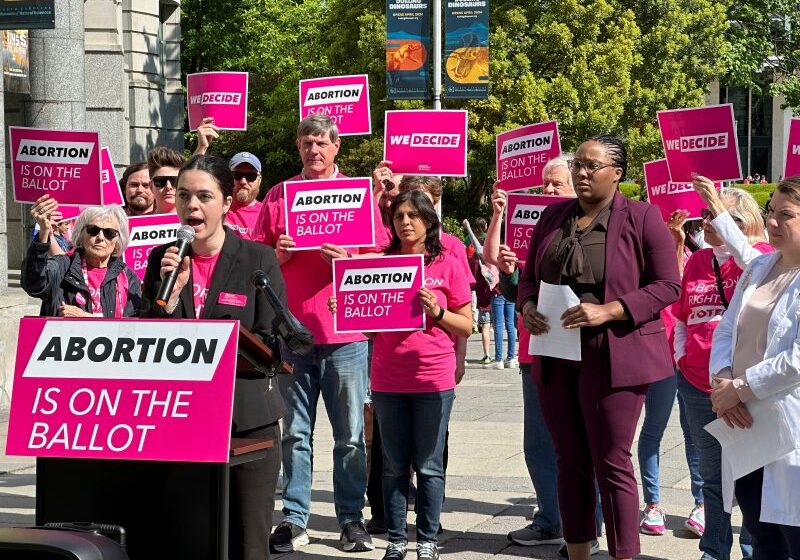Red Cross receives bodies of 4 slain hostages during Israel-Hamas exchange
Arizona and Florida could send a big message on abortion rights


The abortion rights position has won on the ballot in seven out of seven states since the Supreme Court overturned Roe v. Wade in mid-2022 — even in red-leaning ones such as Kansas, Kentucky, Montana and Ohio.
And new polling suggests that in 2024, abortion rights measures could do even better than they did in those first seven states, as voters in states with severe GOP led-abortion bans weigh in.
The polling, from CBS News and YouGov, shows striking margins in Arizona and Florida for enshrining abortion rights into those states’ constitutions. That position leads 65 percent to 21 percent in Arizona and 60 percent to 20 percent in Florida. Previous polling in Florida also showed voters favoring the abortion rights amendment by wide margins — by 21 points in one poll and by 30 points in another.
Florida’s measure will be on the ballot; Arizona’s is still a work in progress, but organizers say they have more than enough signatures to get it there. Other states will feature such measures, but Arizona and Florida are the big ones.
The newest polling shows not only that voters overwhelmingly favor the amendments, but even Republicans lean in favor of them — 43-38 in Arizona and 43-34 in Florida.
That 60 percent overall number in Florida is notable because that’s the threshold for passage in the state — a higher bar than the one for most states.
It’s also notable because it suggests the potential for an even more resounding affirmation of abortion rights.
While abortion rights positions have won plenty of votes from Republican-leaning voters, they have done so to varying degrees. A good way to look at this is how they have performed relative to the 2020 presidential vote.
The best relative performance for an abortion rights amendment thus far? The most recent one. In Ohio last year, it over-performed Biden’s 2020 vote share by 11.6 points. Biden got 45 percent in 2020, but the abortion rights amendment got 57 percent.
The average overperformance across the four states: eight points.
The new Arizona and Florida polls already show support for the amendments outpacing Biden’s 2020 share in those states by 16 points and 12 points, respectively — even with a fair number of undecided voters.
There have been states where the abortion rights position over-performed Biden by more than it did in the four states above: Kansas, Kentucky and Montana. But importantly, those states weren’t voting directly on enshrining abortion rights.
Montana’s measure was narrowly about infants born after failed abortions. Kansas’s and Kentucky’s measures asked voters to affirmatively state that the state constitution didn’t protect abortion rights. In those last two states, the measures over-performed Biden by 17 and 16 points, respectively — the biggest overperformances to date.
And that could be instructive.
These were situations in which voters were effectively being asked not to add a right, but to foreclose one.
Indeed, what could set Arizona and Florida apart from the four states that have previously voted to enshrine abortion rights is how much those rights have been curtailed in those states.
The Florida Supreme Court last month greenlit the state’s six-week abortion ban, which even former president Donald Trump has sought to distance himself from. Then the Arizona Supreme Court last month revived a harsh 1864 law that banned nearly all abortions — even in the cases of rape and incest — and made providing one punishable by two to five years in prison. (This set off a panic in GOP circles that eventually led to the law’s repeal. A 15-week ban remains in place.)
This has set up a situation in which voters could effectively view the abortion rights amendments as referendums on the harsh GOP-backed laws and an opportunity to register their discontent. The same YouGov poll, for instance, shows 72 percent of Arizona voters approve of overturning the 1864 law.
Or, at the very least, the stakes of allowing their representatives to restrict abortion rights could be more real to them than to voters in California, Michigan, Vermont and Ohio, where similar laws weren’t in play.
It’s that dynamic that makes these potentially resounding votes in Florida and Arizona particularly important for the future of abortion rights in America.











